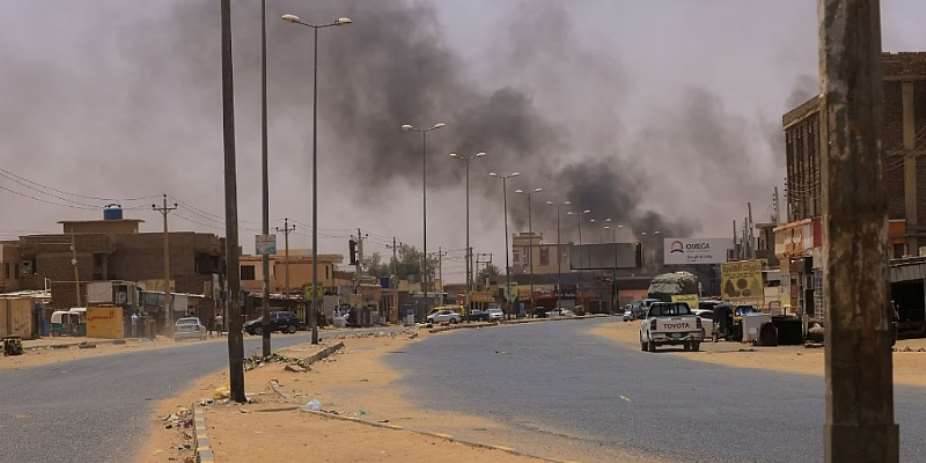Sudan, a country in Northeast Africa, has been facing a tumultuous situation over the past few days. The capital city of Khartoum has been rocked by fighting between two powerful factions of the military leadership - the regular army and the paramilitary Rapid Support Forces (RSF). This power struggle has the potential to cause significant harm, both within Sudan and beyond its borders.
The Rapid Support Forces (RSF) is a paramilitary organization in Sudan established in 2013 as a counter-insurgency force to fight against rebels in the Darfur region. The RSF is composed of former Janjaweed militiamen who were accused of committing atrocities in Darfur during the conflict there. The RSF is led by General Mohamed Hamdan Dagalo, also known as "Hemeti", who is a prominent figure in Sudanese politics.
The tension between the regular army and the RSF has been brewing for some time following discord over a proposed shift towards civilian governance, hostilities broke out, with both the military and their adversaries, the Rapid Support Forces (RSF), asserting their dominance over critical locations in Khartoum, including the airport. The conflict has been centered around control of key government buildings and infrastructure. The fighting has been intense, with reports of heavy gunfire and explosions.
The conflict needs to stop to avert a humanitarian crisis. The fighting has already displaced hundreds of people, with reports of civilians being caught in the crossfire. This has led to a dire humanitarian situation, with people in desperate need of food, water, and medical care. The conflict risks exacerbating an already dire humanitarian situation, with the potential for increased displacement, food shortages, and other challenges.
Furthermore, the conflict could destabilize the region. Sudan is located in a volatile part of the world, and any conflict within the country could have spillover effects in neighboring countries. This could lead to increased tensions between regional powers, further complicating efforts to resolve the conflict.
The power struggle also poses a threat to the democratic transition process. Sudan has been working to transition to a more democratic government since the ousting of former President Omar al-Bashir in 2019. However, the current conflict risks derailing these efforts, with the military leadership potentially using the instability to consolidate its power and delay the transition to a democratic government.
Finally, the conflict poses a risk to international peace. Sudan is an important country in the region, and any conflict within its borders could have implications for the broader international community. The risk of the conflict escalating into a wider regional or global conflict cannot be ignored.
The international community has a role to play in resolving the conflict and preventing further harm. The United Nations has already expressed its concern about the situation and has called for an immediate end to the fighting. The African Union has also expressed its concern and has called for dialogue between the parties to resolve the conflict.
The international community must work together to de-escalate the situation and support Sudan's transition to a more stable and democratic government. This could include providing humanitarian aid to those affected by the conflict, supporting efforts to resolve the power struggle peacefully, and holding those responsible for human rights abuses accountable.
In conclusion, the situation in Sudan is concerning, and the conflict needs to stop to avert a humanitarian crisis, potential regional destabilization, a threat to the democratic transition process, and the risk to international peace. The international community must take action to support Sudan and prevent further harm.





 Akufo-Addo commissions Phase II of Kaleo solar power plant
Akufo-Addo commissions Phase II of Kaleo solar power plant
 NDC panics over Bawumia’s visit to Pope Francis
NDC panics over Bawumia’s visit to Pope Francis
 EC blasts Mahama over “false” claims on recruitment of Returning Officers
EC blasts Mahama over “false” claims on recruitment of Returning Officers
 Lands Minister gives ultimatum to Future Global Resources to revamp Prestea/Bogo...
Lands Minister gives ultimatum to Future Global Resources to revamp Prestea/Bogo...
 Wa Naa appeals to Akufo-Addo to audit state lands in Wa
Wa Naa appeals to Akufo-Addo to audit state lands in Wa
 Prof Opoku-Agyemang misunderstood Bawumia’s ‘driver mate’ analogy – Miracles Abo...
Prof Opoku-Agyemang misunderstood Bawumia’s ‘driver mate’ analogy – Miracles Abo...
 EU confident Ghana will not sign Anti-LGBTQI Bill
EU confident Ghana will not sign Anti-LGBTQI Bill
 Suspend implementation of Planting for Food and Jobs for 2024 - Stakeholders
Suspend implementation of Planting for Food and Jobs for 2024 - Stakeholders
 Tema West Municipal Assembly gets Ghana's First Female Aircraft Marshaller as ne...
Tema West Municipal Assembly gets Ghana's First Female Aircraft Marshaller as ne...
 Dumsor is affecting us double, release timetable – Disability Federation to ECG
Dumsor is affecting us double, release timetable – Disability Federation to ECG
